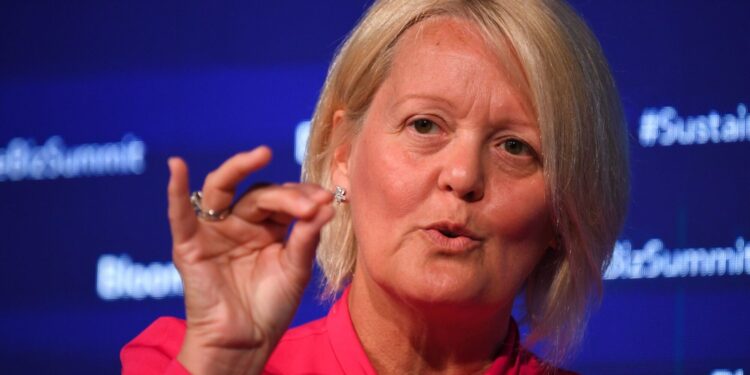The boss of NatWest apologised to Nigel Farage last night for a “deeply inappropriate” internal report that found he was not ‘inclusive’ enough to be a Coutts customer. The Mail has more.
In a letter to the former UKIP leader, Dame Alison Rose insisted the assessment of Mr Farage “does not reflect the views of the bank”.
She stressed that “freedom of expression” and access to banking were fundamental to society, saying she has ordered a review of Coutts’ processes. However, she stopped short of offering to restore Mr. Farage’s relationship with the exclusive private bank, instead repeating the offer of an account with NatWest.
The letter emerged as the Treasury announced that U.K. banks will be subject to stricter rules over closing customers’ accounts, in an effort to protect freedom of speech.
Dame Alison has been urged to “take responsibility” after the Brexiteer unearthed the NatWest subsidiary’s secret dossier accusing him of promoting “xenophobic, chauvinistic and racist views” and noting his “Thatcherite beliefs”.
The letter from Dame Alison to Mr Farage, dated for today, said: “I am writing to apologise for the deeply inappropriate comments about yourself made in the now published papers prepared for the Wealth Committee.
“I would like to make it clear that they do not reflect the view of the bank.
“I believe very strongly that freedom of expression and access to banking are fundamental to our society and it is absolutely not our policy to exit a customer on the basis of legally held political and personal views.
“To this end, I would also like to personally reiterate our offer to you of alternate banking arrangements at NatWest.
“I fully understand your and the public’s concern that the processes for bank account closure are not sufficiently transparent. Customers have a right to expert their bank to make consistent decisions against publicly available criteria and those decisions should be communicated clearly and openly with them, within the constraints imposed by the law.
“To achieve this, sector wide change is required, but your experience, highlighted in recent days, has shown we need to also put our own processes under scrutiny too. As a result I am commissioning a full review of the Coutts processes for how these decisions are made and communicated, to ensure we provide better, clearer and more consistent experience for customers in future.”
Under the changes unveiled this evening, banks will have to explain why they are shutting down someone’s account under the new rules. They previously have not had to provide a rationale for doing so.
The Government has also extended the notice period for a forced account closure from 30 days to 90 days, which it said gives customers more time to challenge the decision through the Financial Ombudsman Service or find a replacement bank.
Andrew Griffith, the economic secretary to the Treasury, said: “Freedom of speech is a cornerstone of our democracy, and it must be respected by all institutions.
“Banks occupy a privileged place in society, and it is right that we fairly balance the rights of banks to act in their commercial interest, with the right for everyone to express themselves freely.
“These changes will boost the rights of customers – providing real transparency, time to appeal and making it a much fairer playing field.”
Worth reading in full.
Stop Press: Will the apology be enough to save the under-fire NatWest boss? Allison Pearson in the Telegraph says she has to go, while Ross Clark in the Express says NatWest should lose its banking licence!
Stop Press 2: The Free Speech Union has just published some FAQs about what to do if you’ve been de-banked, including how to submit an SAR request and a template SAR that’s easy to adapt.













To join in with the discussion please make a donation to The Daily Sceptic.
Profanity and abuse will be removed and may lead to a permanent ban.